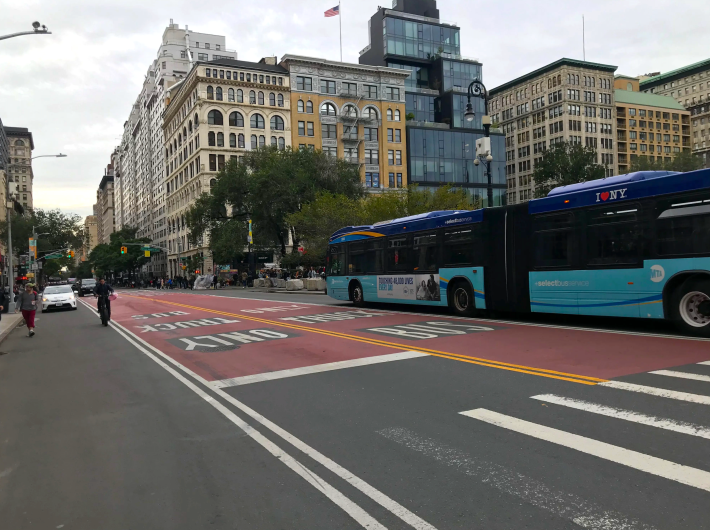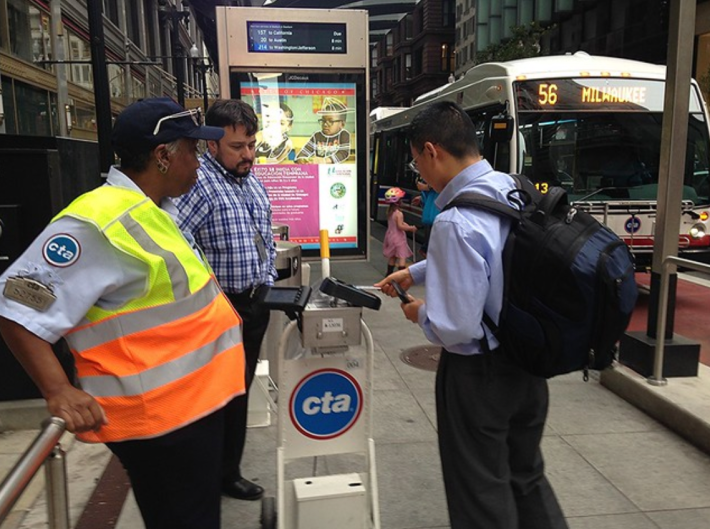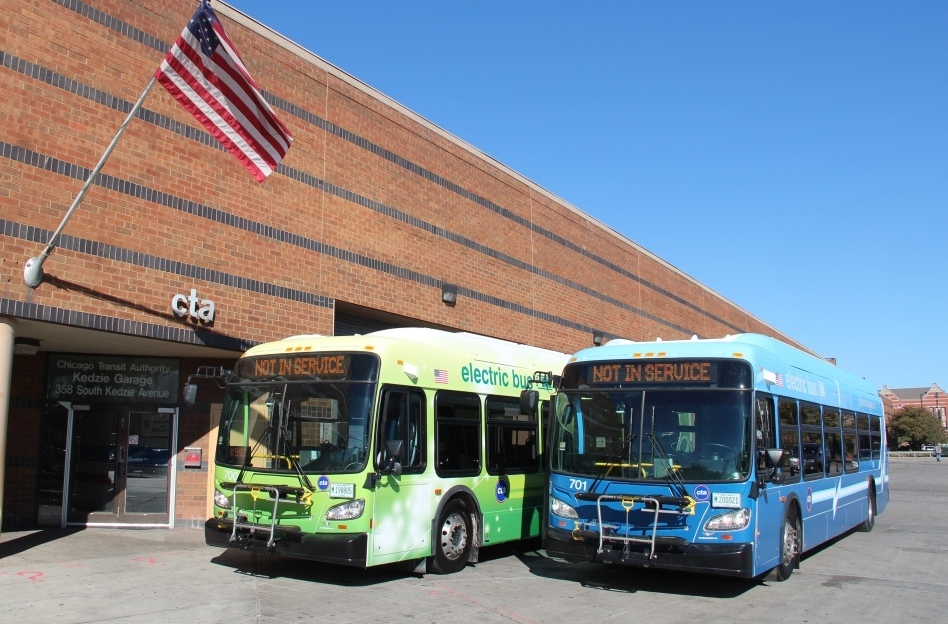Climate advocates from the local chapter of the group Climate Reality Project are calling on the Chicago Transit Authority to cancel its plans to buy new diesel buses and instead purchase all-electric buses. The CTA currently has a goal to fully electrify its bus fleet by 2040, recently outlined in the "Charging Forward" plan released last February.
The CTA argues that its next batch of diesel buses will replace older, less reliable, and less fuel-efficient diesel vehicles. Additionally, the agency says, 70 percent of the CTA’s current bus fleet is nearing the end of its predicted lifespan or has surpassed it. Arguably, the new diesel buses are needed in the short-term as a stopgap measure until the CTA can invest in more electric buses.
As reported by the Sun-Times Monday, local Climate Reality Project vice chair Bruce Mainzer has served in executive positions at the Regional Transportation Authority and the Illinois Department of Transportation. Mainzer pointed to Los Angeles Metro’s plans to fully electrify by 2030, and Seattle’s Metro Transit's plans for full electrification by 2035. The CTA debuted its first electric bus in 2014, and currently is running e-buses on the #66 Chicago Avenue route, yet Mainzer argued the CTA should be more aggressive about electrification. He would like to see the agency create a pathway for more electric buses down the road, starting with ordering electric buses now. With the current purchase order of more diesel buses, a third of the fleet will be ran on diesel through the 2030s according to Mainzer, who said he finds this “unacceptable”.
According to the Charging Forward report, in order to meet the 2040 electrification goal, the CTA must stop ordering non-electric buses after 2026. The study outlined hurdles to electrification, such as the current dearth of charging stations.
Brian Steele, a CTA spokesman elaborated on that barrier to the Sun-Times, “To operate and support a fleet of e-buses requires extensive charging infrastructure and significant electrical power upgrades across the service area. CTA’s e-bus deployment must be planned and designed to ensure sufficient charging infrastructure is available to accommodate bus service and schedules.” A total of 500 to 600 slow chargers and an additional 30 to 40 fast chargers will need to be installed at CTA garages. On top of that, right now e-bus manufacturers are having trouble meeting the nationwide demand for the vehicles.

Climate Reality Project is right that Chicago should pick up the pace of electrification. But there are other things the transit agency can do right now to reduce greenhouse gas emissions, by converting more car trips to bus trips. Speeding up CTA bus speed and reliability would go a long way to boost ridership.
While the CTA has painted a few miles of poorly-enforced bus lanes, we're way behind peer cities like New York and LA in that department. In addition to creating many more miles of bus lanes, we need to keep drivers from blocking them, so Ald. Daniel La Spata (1st) has proposed putting cameras on buses to hold scofflaws accountable, an approach that would need to be legalized through state legislation.

Another no-brainer for shortening bus trip times would be introducing prepaid boarding on entire bus lines, to shorten "dwell time" at bus stops due to people waiting in line to pay their fare while boarding. For example, on New York's Select express bus routes, there are kiosks at each stop where you buy a ticket, and there are random fare checks. Chicago's downtown Loop Link express corridor, which launched in 2015, was supposed to have prepaid boarding, and the CTA experimented with staffed prepaid boarding pilots in 2016, but ultimately decided against making prepaid boarding permanent. That's one reason the route has seen only modest speed increases.
Taking action to help the existing bus fleet operate more efficiently its an overlooked strategy to fight climate change. After all, what good will more electric buses do if they’re still half empty and stuck in traffic jams created by solo car drivers? As much as I understand Climate Reality Project’s desire to see more electric buses, I can’t help but wonder if they could do more good by lobbying for bus lanes and legalizing camera enforcement of those lanes.




